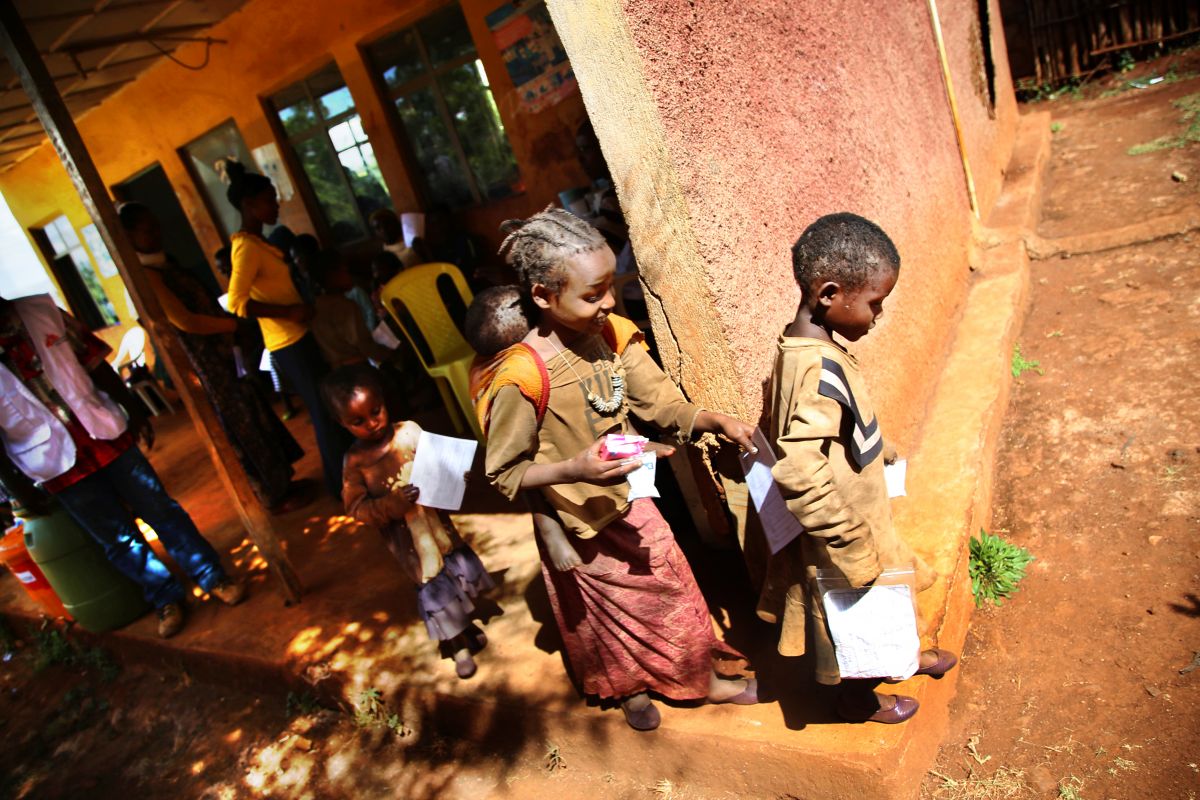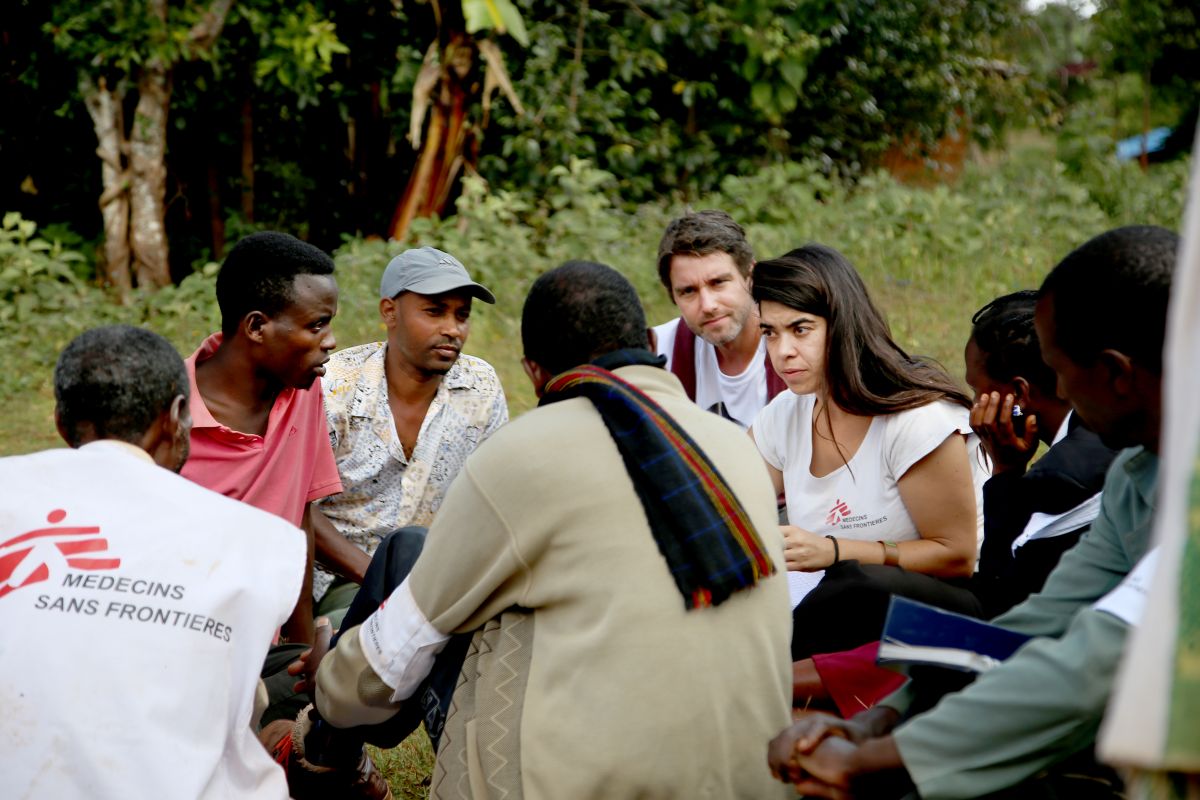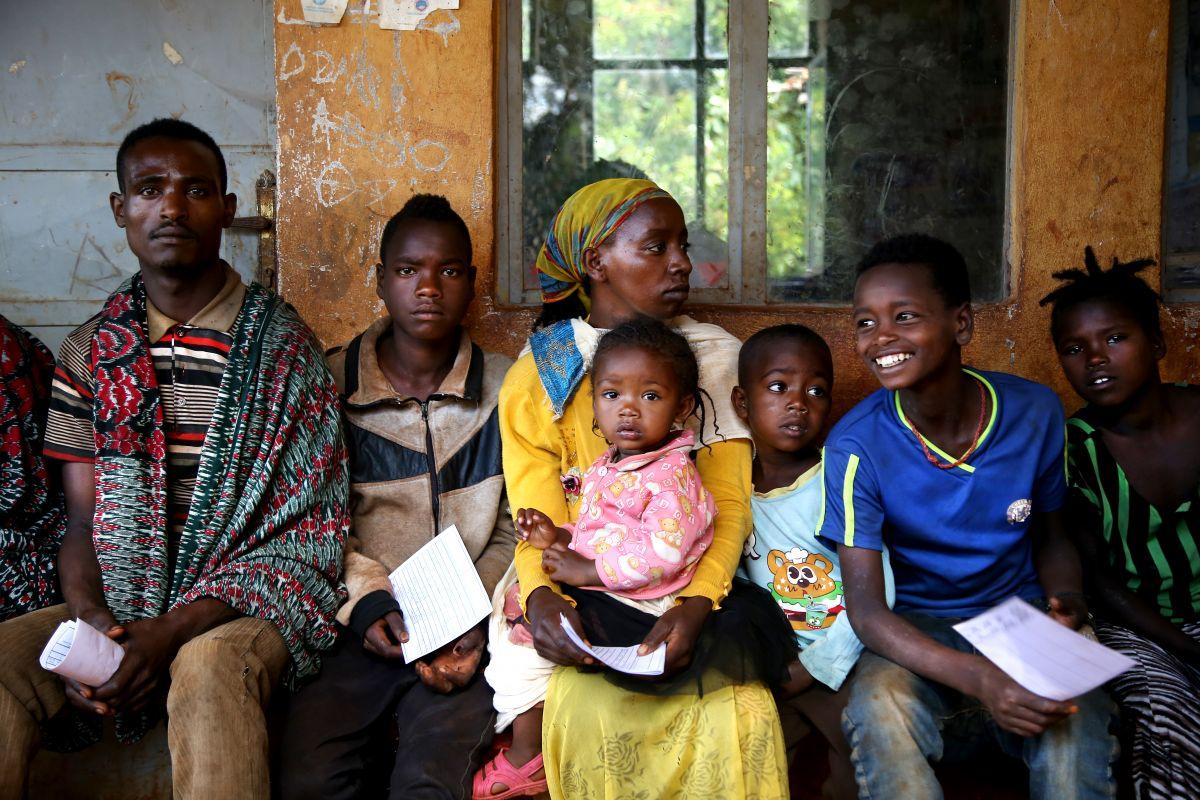Addis Ababa/Nairobi, 21 December 2018 – As Ethiopia experiences displacement crises in several parts of the country simultaneously, continued efforts are needed to ensure that people fleeing their homes due to violence can access basic services, including food, shelter and medical care, says international medical organisation Médecins Sans Frontières/Doctors Without Borders (MSF).
MSF’s call comes as its teams end one emergency response in the south of the country while preparing to respond wherever the next crisis arises.
MSF’s emergency response in the Gedeo area of the Southern Nations, Nationalities and People’s Region (SNNPR) and the Guji area of the Oromia region began in July 2018 after ethnic violence escalated in May and hundreds of thousands of people fled their homes, leaving them without basic services and putting their health at risk.

“Thousands of people were living cramped together,” says MSF emergency coordinator Josh Rosenstein. “Families were sleeping on the bare ground in vacant buildings, suffering from diarrhoea, intestinal parasites, respiratory tract infections and skin infections caused by poor, overcrowded living conditions and a lack of clean water.”
MSF engineers immediately started work on improving sanitation and providing clean drinking water. Between August and December 2018, they trucked more than 2.8 million litres of clean water to various locations, repaired several water supply systems and installed and repaired numerous hand pumps.
Meanwhile MSF medical teams supported two hospitals, four health centres, five health posts and 11 mobile clinics in the Gedeo and Guji areas. Between July and December 2018, they provided nearly 80,000 consultations and treated some 6,000 children under five for severe acute malnutrition. In August, MSF teams in Gedeo vaccinated more than 103,000 children under 15 against measles in collaboration with the Regional Health Bureau. MSF staff also provided people with mental health support, treated survivors of sexual violence, and distributed essential relief items.
Six months later, health indicators in these two areas have stabilised and MSF is handing over its medical activities to the Ethiopian health authorities and other organisations.
“Over recent weeks, the severity of diseases has steadily decreased, the health centres we support are admitting lower numbers of children with severe acute malnutrition, and the coffee harvest has enabled people to generate some income,” says Mohamed Morchid, MSF’s head of mission for Ethiopia. “With the end of the rainy season, the risk of outbreaks of infectious diseases has also gone down.”

MSF health promoter María García holds a meeting with her team during the crisis in Gedeo/Guji.

As it ends its response, MSF has donated enough medical and logistical supplies to last for two months, including kits to treat all of the most common diseases.
However, while the situation in Gedeo and Guji has undoubtedly improved, many displaced people are still living in precarious conditions in camps and church compounds or sheltering with relatives and friends. At the same time, continued ethnic tensions and reports of sporadic violence have led to more people fleeing their homes in recent weeks.
MSF will continue to monitor the situation, and stands ready to launch a new emergency response if needed in the wake of further violence, a significant deterioration in people’s health status or a new spike in child malnutrition, whether in Gedeo, Guji or elsewhere in the country.
At the same time, MSF is urging other organisations to prepare themselves to ramp up efforts to ensure that people’s needs are met in an impartial way in the several internal displacement crises across the country.
“It is crucial to continue mobilising efforts – at the local, regional and federal level – to ensure that people’s pressing needs for healthcare, shelter and food are covered, and that those wishing to return to their homes can do safely and freely,” says Morchid.
MSF has worked in Ethiopia for more than 30 years, responding to emergencies countrywide, including malnutrition, malaria, acute watery diarrhoea, refugees’ health and access to healthcare. MSF provides free and quality healthcare, often in partnership with government health authorities, institutions and other partners. MSF is independent of all political and warring parties and provides medical care to people in need regardless of their race, religion, gender or politics.
ENDS
